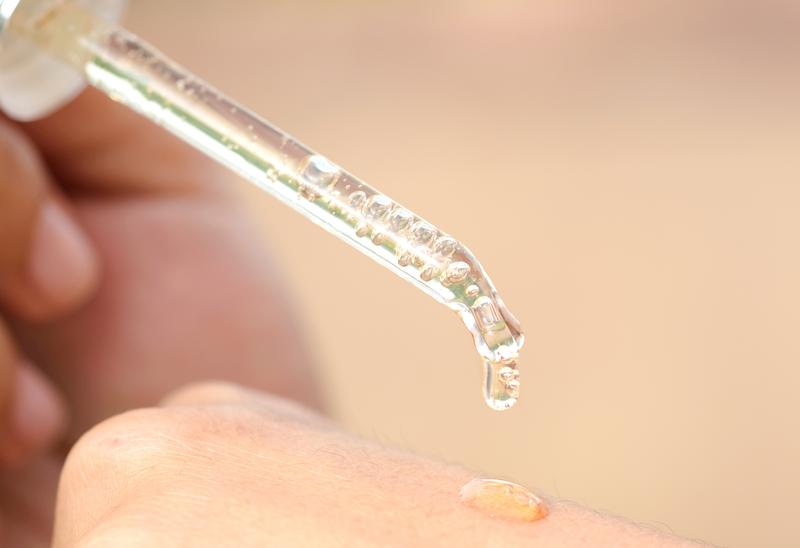Welcome to the Source! We’re so glad you’re here.  Our goal is to provide helpful resources, knowledge, and tips to our followers about EDCs.  Even though we pride ourselves on being EDC experts, we thought our readers could benefit from a few external resources to learn more.
By spreading awareness, our hope is that the harmful effects of EDCs will become more widely known, leading to more research and more resources.  We promise to update this page any time we come across new and interesting material.
To make this easy, we’ve provided links to accessible information that will give you more insight into why hormone-safety is so important to us.  We invite you to explore, learn, and grow along with us on our mission to reduce chemical exposure.
Hugh & Grace FAQs
A great place to start is with Hugh & Grace’s FAQ page. These FAQs can answer questions like, “What does hormone safe really mean?†and “How do EDCs impact my health?â€Â You can also learn about how Hugh & Grace products can help you reduce your chemical body load.  After reading this FAQ page, you’ll be armed with knowledge about products that we guarantee will help you to reduce your chemical body load to live a healthier, happier life.
The Endocrine Society
But don’t just take it from us, visit the Endocrine Society website to find helpful information about how EDCs work to disrupt your endocrine system. They have their own list of informative resources that you can use to learn more, including scientific studies, information about EDCs in public policy, and a comprehensive list of Common EDCs and Where They Are Found.
The Endocrine Society features this short video by the Hormone Health Network explaining EDCs. If you’d like a comprehensive overview of EDCs in just three minutes, we recommend watching it!
National Institute of Environmental Health Services
For more than three decades, the National Institute Environmental Health Services (NIEHS) has been a pioneer in conducting research on the health effects of endocrine disruptors. NIEHS was involved in developing a consensus statement in 2019 on the key characteristics of endocrine-disrupting chemicals, which provides a framework to help scientists evaluate potential endocrine disruptors. Their site has lots of helpful resources, like a 2-page fact sheet titled Endocrine Disruptors and Your Health, and a list of common EDCs.
EWG’s Skin Deep Database
The Environmental Working Group (EWG) is a non-profit, non-partisan organization dedicated to protecting human health and the environment. Their site has lots of helpful resources, like this list of common EDCs and how to avoid them, a Pesticides in Produce guide, and a list of consumer products verified by EWG. As a skincare junkie, my personal favorite EWG resource is Skin Deep, a cosmetics database. You can search for specific products, brands, or ingredients and review EWG’s rating. Every product and ingredient in Skin Deep gets a two-part score – one for hazard and one for data availability. The products are rated from EWG Verified (the best), all the way up to 10 (the worst). The EWG VERIFIED mark on a product indicates that the product meets EWG’s strictest standards for transparency and health, while a 10 indicates a high hazard. Ingredient-related health concerns can include Developmental and Reproductive Toxicity, Allergies and Immunotoxicity, Endocrine Disruption, Neurotoxicity, Organ System Toxicity, Cancer, Irritation, Occupational Hazards, and other contamination concerns. As Hugh & Grace continues growing, we are actively working toward becoming an EWG Verified brand.
Million Marker Approved Products List
If you are looking for products that can help you reduce your chemical body load, check out Million Marker’s Approved Products List. Million Marker is on a mission to crowdsource bio-monitoring to help people understand what’s in their body that shouldn’t be there and how to minimize their exposures. Million Marker Approved Products do not contain BPAs, Phthalates, Parabens, Sulfates, Glycerin from non-vegetable sources, and other toxic chemicals. This list contains approved Shampoos and Conditioners, Body Oils, Butters, and Lotions, Soaps and Body Washes, Deodorants, Lip Balms, Sunscreens, Hair Styling and Treatment, Oral Care, Facial Care, Food Storage, Water Bottles, and Home and Cleaning Supplies. Check out their site for more information on their mission, and to learn more about approved products.
Million Marker Chemical Glossary
Million Marker also has a glossary of over 45 unique toxic chemicals, including synthetic and natural EDCs. Wait, EDCs can occur naturally? That’s right! Naturally occurring ingredients, like Lavender Oil and Tea Tree Oil, can disrupt your endocrine system. This glossary breaks down each chemical and its corresponding health concerns. I keep this link handy in my Notes app so I can easily access it when shopping for any consumer products.
TEDX List of 1,482 EDCs
In the United States, skin care products are not well regulated or screened for true safety. While other countries have banned hundreds of ingredients in personal care products, the U.S. Food and Drug Administration (FDA) has banned only 11 chemicals. Although they are no longer in operation, for 16 years, TEDX operated as a science based, nonprofit research institute with a mission to reduce the production and use of chemicals that interfere with healthy hormone function. TEDX researchers evaluated chemicals by searching the publicly available scientific literature and identifying peer-reviewed research showing effects on endocrine signaling, and came up with a list of 1,482 Potential Endocrine Disruptors. Search for a specific chemical to learn how it’s used, alternative names for the chemical, and resources to learn more.
Sicker, Fatter, Poorer by Dr. Leonardo Trasande
Dr. Leonardo Transande is a pediatrician, professor and world-renowned researcher who has studied the impact that harmful EDCs have on the endocrine system.
If you’re like us, reading a title like “Sicker, Fatter, Poorerâ€Â may cause an eyebrow raise. We all want ourselves and our families to be healthy and prosperous, right? Unfortunately, the harmful effects of EDCs can leave you sicker, fatter and poorer.  Here’s the good news, though – reading this roughly 200-page book will teach you simple and effective ways to reduce your chemical body load.
Not only does Dr. Trasande outline how hormone-disrupting chemicals are affecting our daily lives, but he also explains what we can do to protect ourselves and fight back. We love a good call to action!
If you want to learn more before purchasing, we recommend viewing this short clip of Dr. Trasande talking about his book on CBS News. Dr. Transande offers concrete examples of everyday hormone disruptors and four simple ways to limit your exposure.
9 Ways to Avoid Hormone-Disrupting Chemicals
If you are ready to act, then you’ll love this article by the Natural Resources Defense Council. This article offers nine easy-to-make changes in your everyday life that can limit your exposure to EDCs. Aside from picking up helpful tips, this article will give you a brief overview of EDCs, the importance of reducing your exposure, and even a bonus tip – Speak Out (which just so happens to be a fabulous transition to our next helpful resource!)
“Endocrine Disruption, Environmental Justice, and the Ivory Tower“
If TED Talks are your thing, then you’ll love this video. We mentioned that by raising the awareness of EDCs, we hope that more resources and products that can help us reduce our chemical body load will become available.  Clearly, we are into advocating (shout-out to the Hugh & Grace Advocates). So, it’s fitting that this speaker, Dr. Tyrone Hayes, not only explains how Endocrine Disruptors impact our bodies, but also what he, as a scientist, is doing about it.  Arguing that, those who have the privilege to know, have the duty to act,†Dr. Hayes explains that he believes that companies and scientists should increase transparency when it comes to knowledge about harmful chemicals.
Our goal is to provide helpful resources, knowledge, and tips to our followers about EDCs. We hope that you’ve learned something new, and we encourage you to continue to educate yourself and others about hormone safety.


